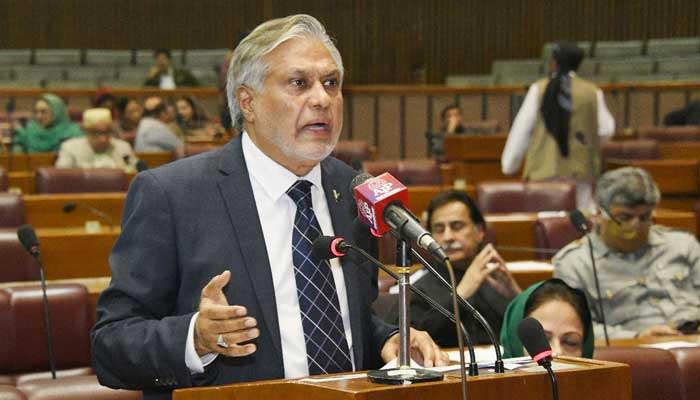Finance Minister Ishaq Dar on Thursday tabled the Rs14.7 trillion budget for the fiscal year 2023-24 in the National Assembly. The budget is expected to focus on economic growth, job creation, and poverty alleviation.
Dar is expected to announce a number of measures to boost economic growth, including tax cuts, increased spending on infrastructure, and reforms to the energy sector. He is also expected to announce measures to create jobs, such as subsidies for small businesses and training programs for the unemployed.
The budget is also expected to focus on poverty alleviation. Dar is expected to announce a number of measures to help the poor, such as cash transfers, food subsidies, and free healthcare.
The budget is being presented at a time when the Pakistani economy is facing a number of challenges, including high inflation, a widening current account deficit, and a falling rupee. The government is hoping that the budget will help to address these challenges and put the economy on a sustainable growth path.
Here are some of the key points of the budget:
- The budget deficit is projected to be 4.9% of GDP in FY2023-24.
- The government has set a growth target of 5.5% for FY2023-24.
- The budget includes a number of tax measures, including a 1% increase in the general sales tax (GST) and a new tax on sugar.
- The government has also announced a number of spending measures, including increased spending on infrastructure and social programs.
The budget is expected to be met with mixed reactions. Some economists have praised the government for its focus on economic growth and job creation. However, others have criticized the government for its high budget deficit and its reliance on debt financing.
Only time will tell whether the budget will be successful in achieving its goals. However, it is clear that the government is facing a number of challenges and that the budget is a critical tool for addressing these challenges.

